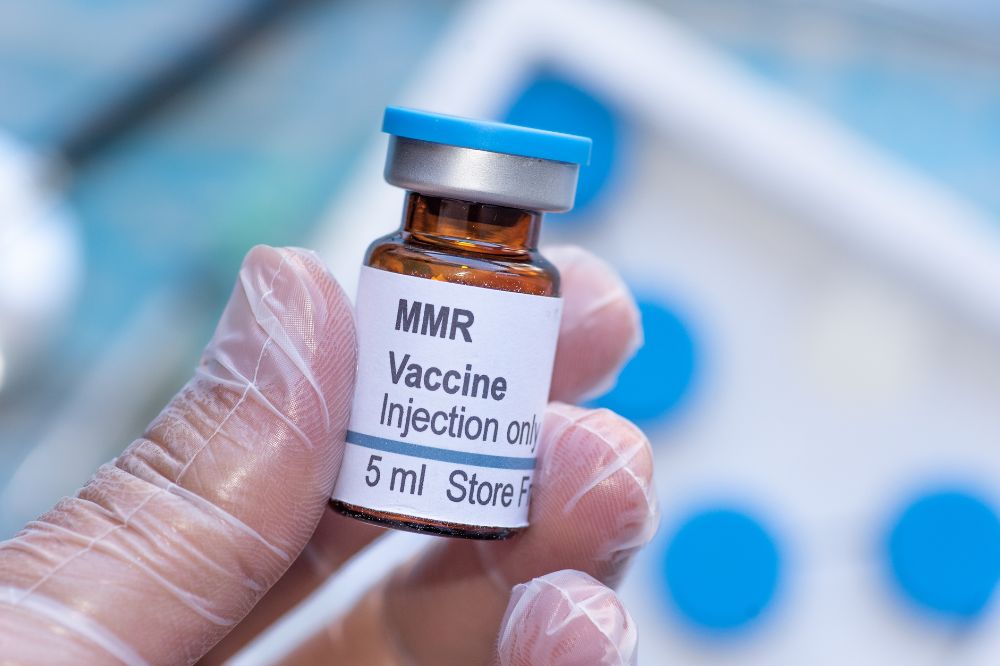University students urged to check they’re up to date with vaccinations

Public Health Wales is urging students arriving at university this autumn to ensure that they are up to date with all their childhood vaccinations to avoid serious illnesses such as meningitis, measles and septicaemia.
With lots of people coming together in confined environments, universities can be hot spots for serious infection to spread.
By getting vaccinated, knowing the symptoms of meningitis, measles and septicaemia, and registering with a GP close to university students can greatly reduce their chances of becoming seriously ill.
The message is being backed by Levi Lawrence, a 21 year old psychology student from Wolverhampton, who caught meningitis in his first term at Swansea University last year and was seriously ill as a result.
“I’d been feeling under the weather for a couple of weeks, which I put down to ‘fresher’s flu’” recalls Levi.
“But one morning I woke up feeling really ill, I was vomiting and confused, and quickly got to the point that I couldn’t really speak and could barely walk. My housemate got me to the hospital quickly, and I believe that her quick actions saved my life.
“I ended up spending ten days in hospital with meningitis and sepsis, and was extremely ill. It was a really scary time, I had problems with my legs which meant that I was on crutches for weeks afterwards and I still get electric shock-type pains in my legs now.”
Levi’s story is a stark reminder of the impact of infectious diseases such as meningitis, and how they can make people seriously ill and cause huge disruption to people’s lives.
Dr Chris Johnson, Head of Vaccine Preventable Disease Programme for Public Health Wales, said: “Levi’s experience shows just how important it is for students and young people to ensure that they are up to date with all their routine vaccinations ideally before leaving for university or as soon as possible once there.
“Routine childhood vaccinations are safe and effective, and protect against the serious consequences of infectious diseases that so often circulate among young people starting university.
“The introduction of the meningitis C vaccines, which includes the MenACWY vaccine given to teenagers, has been really successful, as it has reduced the number of cases caused by Meningitis C by 90 per cent.
“It’s really important that young people make sure they get these vaccines, which protect them from serious illnesses and allow them to get on with enjoying this new phase of their life.
“Many young people are unaware of what vaccines they have had as children so it’s important that any missed doses are brought up to date to ensure optimum protection.
“They can check whether they are up to date with their vaccinations, and catch up with any doses that they are missing, by getting in touch with their GP or local health board child services.”
The free NHS vaccines that are available for children and young people in Wales are:
- MMR (measles, mumps and rubella)
- MenACWY (protecting against 4 types of meningococcal disease)
- HPV for female students, protecting against cervical and other cancers caused by the human papilloma virus together with genital warts
- Td/IPV booster vaccine protecting against diphtheria, tetanus and polio.
Students are also being urged to recognise the symptoms of such illness and to seek medical help immediately if either they or someone they know exhibits them.
Not all strains of Meningococcal disease are protected by the vaccine, so people still need to know the symptoms even if vaccinated. The main symptoms of Meningitis are:
- Sudden onset of fever
- Headache
- Stiff neck.
There are often also other symptoms, such as:
- Headache with nausea or vomiting
- Decreased appetite
- Confusion or difficulty concentrating
- Sudden fever
- Severe Headache that seems different than normal
- Seizures
- Sensitivity to light
- Sleepiness
- Lethargy
- Skin rash
The main symptoms of Septicaemia are:
- Generalised body swelling
- Faster heart rate
- Reduced urine output
- Fever and chills
- Decrease in platelet count
- Difficulty in breathing
- Mental confusion
- Hyperventilation
The main symptoms of measles are:
- Cold-like symptoms
- Sore red eyes
- High temperature
- Red-brown blotchy rash.
Young adults are also reminded of the importance of registering with a GP in their new area, so that you can ensure that you’re able to access medical care quickly and easily when you’re at university, including getting GP appointments and ordering regular medication.
Registering locally will not prevent students from accessing healthcare from GPs when they return home for holidays.
With rising pressures on the NHS this winter, it is more important than ever to do everything you can to stay well and look after those around you.
For those eligible, getting vaccinated against flu and COVID-19 is the best line of defence against serious illness.
There are also some very simple actions you can do to reduce your chances of becoming unwell and to help protect others.
Washing your hands with soap and water for 40 seconds throughout the day can stop the spread of disease and common viruses.
If you are showing symptoms of being unwell, limit your contact with others who may be vulnerable.
Support our Nation today
For the price of a cup of coffee a month you can help us create an independent, not-for-profit, national news service for the people of Wales, by the people of Wales.






